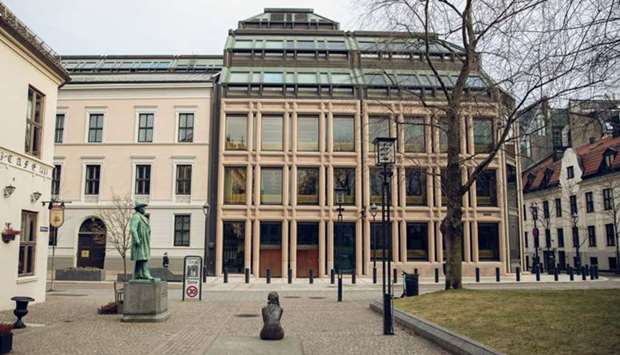Norway’s central bank cut its key interest rate to zero, a record low, from 0.25% yesterday in a surprise move aimed at protecting an economy reeling from the coronavirus crisis.
Norges Bank said the Nordic country’s mainland economy, which excludes oil and gas output, is now expected to contract by 5.2% this year, down from a March forecast of 0.4% growth.
“We expect activity in the Norwegian economy to decline by around 5% in 2020, a decline of a magnitude that we have not seen since World War Two,” Governor Oeystein Olsen said after the central bank’s third rate cut in less than two months.
Norges Bank, which most economists polled by Reuters had predicted would keep rates on hold, has rapidly cut the cost of borrowing from 1.5% and forecasts it is likely to stay at zero until the end of 2023.
The central bank, which said it now expects growth of 3.0% in 2021 compared with an earlier forecast of 1.3%, also said it will continue its recently introduced programme of extraordinary liquidity lending to banks until the end of August.
The Norwegian government has also offered business loans, tax deferments and spending worth 360bn crowns ($35bn) to keep the economy going.
Several banks said they would cut their Norwegian mortgage rates after the Norges Bank move and Danske Bank reduced its cost of borrowing by up to 0.4 percentage point.
“Activity in the economy is expected to pick up as containment measures are eased.
But it will likely take time for output and employment to return to the levels prevailing before the pandemic,” Olsen told a news conference.
Norway invoked emergency powers to restrict travel and shut many public and private institutions, although steps are now being taken to gradually re-open.
However, April unemployment rose to more than 15%, its highest-ever level as firms laid off staff, data from Norway’s Labour and Welfare Agency (NAV) show.
Before March, Norway’s key policy rate had never been lower than 0.5%, the level which it stood at from 2016 to 2018.
Norges Bank is unlikely to join Denmark, Switzerland or the European Central Bank in moving its policy rate into negative territory, although it has not completely ruled this out.
“The way we see things going forward, we don’t foresee any further rate cuts.
But then we add that...
the committee is especially focused on having well-functioning financial, including money, markets.
So nothing is dismissed,” Olsen said.
Capital Economics, one of two brokerages surveyed by Reuters that had expected a rate cut, said in a note to clients that given Norges Bank had “a reputation for doing exactly what it says” it now expected rates to “remain rooted at zero”. Although the Norwegian crown initially fell to 11.16 against the euro from 11.07 just before the 0800 GMT rate announcement, it was trading at 11.03 by 1200 GMT as the perceived risk of negative rates receded.
When the crown fell to a record low 13.17 against the euro in March, Norges Bank said it could intervene in the market, and revealed yesterday it had made extraordinary transactions worth 3.5bn crowns ($342mn).

The Norges Bank, Norway’s central bank, in Oslo. Norges Bank said the Nordic country’s mainland economy, which excludes oil and gas output, is now expected to contract by 5.2% this year, down from a March forecast of 0.4% growth.
